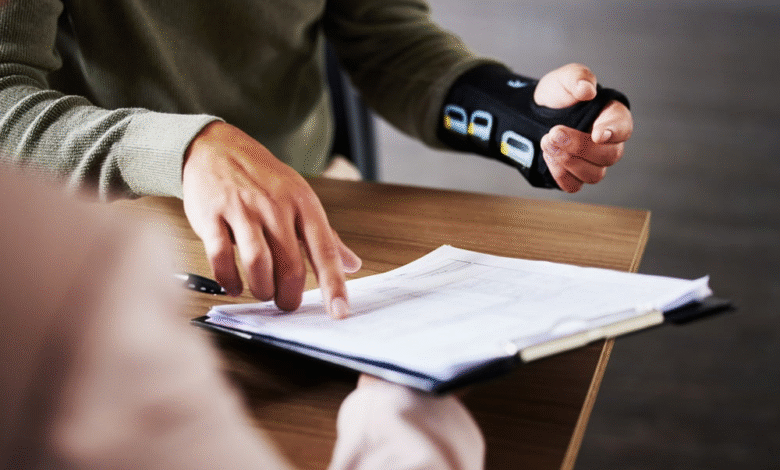What Most People Miss When Pursuing a Personal Injury Lawsuit
Avoid costly mistakes in your injury claim. A Sioux Falls personal injury lawyer helps you navigate timelines, tactics, and emotional fallout for better outcomes.

In Sioux Falls, personal injury cases are more than paperwork and legal jargon—they’re stories of lives disrupted and futures on pause. However, many who pursue justice miss key details that can define the outcome. It’s not just about the injury itself—it’s about timelines, documentation, negotiation tactics, and emotional fallout.
Each overlooked step opens the door for delays, disputes, or lower settlements. Partnering with a Sioux Falls personal injury lawyer gives injured individuals the insight and structure needed to avoid these missteps and pursue compensation with clarity and control.
Understanding the Legal Process
There are numerous steps to take in the legal process, from filing the claim to potential appearances in court. Understanding these stages is key. Initially, one must gather evidence. This consists of things such as medical records, photographs, and witness statements. Good paperwork backs the claim and can make or break the case.
It is common for people to overlook the significance of deadlines set by the law. If a deadline is missed, a case may be thrown out of court. It is necessary to know the statute of limitations, which is different depending on where the injury was sustained and the kind of injury that occurred. It’s all the more important to track these deadlines to keep the case from going stale.
The Role of Medical Evidence
Medical evidence plays a critical role in personal injury cases. Detailed medical records provide proof of the injury’s severity and the impact on daily life. It’s not just about showing the injury but also demonstrating the ongoing effects and required treatments. This evidence can influence the compensation awarded.
Medical documentation should be as accurate as possible and consistent. Inconsistencies in medical records may destroy the credibility of the claim. Continued attendance with medical suppliers provides proof of your wound as time passes. Such consistency can bolster the argument considerably.
Choosing the Right Legal Representation
Choosing the best lawyer is an important decision. A personal injury attorney knows how to navigate the complex post-accident process, which can help successfully deal with many forms of slip-and-fall accidents in the long run. Not all injury lawyers have the same area of expertise, though, so finding one who primarily focuses on personal injury law can be advantageous.
Working with legal representation is dependent on communication. A quality attorney who listens, provides the options available in understandable terms, and keeps the client up to date throughout the process can be huge. Having a good understanding of the law helps in managing the case correctly.
The Importance of Negotiation Skills
Apart from negotiation and mediation, personal injury cases involve a lot of negotiation. Negotiation is key since many cases are settled prior to going to court. If you know the value of the claim and are willing to negotiate fairly, this will yield a better result in the end.
It may be wise to enter negotiations with a clear idea of what is fair. This includes taking into account medical expenses, unpaid income, and pain and suffering. Knowing in advance can make a huge difference in the way negotiations unfold.
Recognizing the Emotional Impact
One thing that a lot of people overlook is the emotional impact of an injury. Well, if you are recovering from the stress of the event, the aftereffects, and court cases, it is enough to put someone over the edge. Recognizing this emotional toll is essential for your mental health.
Counseling and support groups are the most important support systems. During this time, it is just as important to treat the mind as it is to treat the body. Approaching it in a balanced manner can work wonders for the outcome of a case.
Financial Considerations
The financial repercussions can be more than immediate, as well as medical expenses. Mistake #6: Not thinking about the long-term expenses of an injury. These may be treatment, rehabilitation, or adjustments for a disability.
Proper evaluation of these potential future expenses is important in calculating compensation. Financial specialists should be used to determine how much the injury has cost realistically. This guarantees that the settlement includes everything that is required.
Conclusion
Filing a personal injury lawsuit is not just a matter of turning in a claim. This process, and what it involves, is complex and requires a careful record of every step. It also requires ease of moving and negotiating the legal landscape. This means selecting an appropriate legal defense and focusing on both bodily and emotional conditions.
With this knowledge of frequently overlooked factors, a person can better maneuver through their personal injury case. Such care can lead to a successful end to ensure the recovery needed for compensation.











